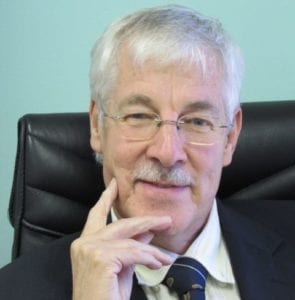The Institute of Municipal Engineering of Southern Africa (IMESA), the oldest industry association serving the discipline of municipal engineers in the country, commenced with lobbying for higher integration and collaboration between local governments in Southern Africa.
Over the past few years, IMESA has increasingly tabled the importance of not only serving South African municipal engineers, but also to develop a network of support, knowledge sharing and service integration for the municipal engineering fraternity across the SADC states. The opportunity for IMESA to open a branch in Zimbabwe’s capital, Harare has arisen, and the organisation is actively pursuing its obligation to become more visible in Southern African countries. “South African municipalities face very similar challenges to the rest of Southern Africa. It is critical for local governments in South Africa to engage with our neighbouring countries, to ensure knowledge and skills transfer, capacity building and sharing best practice examples at local level,” says Frank Stevens, president of IMESA. Two years ago, Stevens was invited to Mutare, Zimbabwe’s third largest city to deliver the Cecil Leonard Robertson Memorial Lecture to the Zimbabwe Institution of Engineers (ZIE), a multidisciplinary industry association in Zimbabwe. The ZIE has been serving engineers in Zimbabwe since 1944, and aims to maintain appropriate standards for engineering and technician competence, while promoting the advancement of the engineering discipline. Although Stevens’ presentation focussed on water and sanitation service delivery, he had an opportunity to share some background and information about the work IMESA does, and left the conference being inspired by the 140 delegates’ interest and eagerness to get involved with the organisation.“As an organisation we have become actively aware of the importance to liaise with our neighbouring states. Recently, SADC held a workshop to promote the cooperation on trans-boundary water resources, and address Southern African water management challenges, in light of a rising demand for water access and services. This is only one example illustrating the growing need for cross-border collaboration to stimulate resource and management integration amongst Southern African municipalities,” says Stevens.
The vision to establish an IMESA branch in Harare gained more momentum when members of IMESA met with Simon Muserere, the wastewater manager with the City of Harare and a corporate member of ZIE, at the eThekwini municipality’s water and sanitation division. Muserere is actively involved with an outreach and upliftment programme funded by eThekwini, the World Bank and AusAID – an on-going initiative in Bulawayo and Harare for some three years. The eThekwini programme comprises updating records, assessing the water and sanitation systems, and attending to bottlenecks and faults that exist in Bulawayo and Harare’s service delivery networks. Training is central to the programme and focusses on geographic information systems and pressure management. IMESA has directed a letter to Dr Sanzan Diarra, the CEO of the ZIE, as well as the Town Clerk and heads of departments of Harare Municipality regarding the establishment of a Zimbabwe IMESA branch. A two-day workshop is envisioned to serve as a platform for planning the future steps and will hopefully guide the planned creation of the IMESA branch in Harare. IMESA is currently exploring the setting up of a similar process in Swaziland. The notion was met with enthusiasm by municipal engineers in Mbabane.






